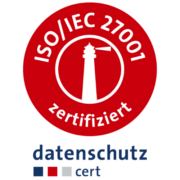Case Study: Online voting for the Stakeholders of Photonics21
Photonics21, a public-private partnership program for optical methods from the VDI Technology Centre in Dusseldorf, opted to elect their representatives online. The panel of stakeholders is the central decision-making body of Photonics21 and can contain up to 100 representatives.
Between October 19th and November 2nd 2015, 335 eligible voters elected their “Board of Stakeholders” online. The stakeholder election took place in two stages:
- Round 1 – the institutions were able to nominate their candidates to stand for election
- Round 2 – the wider electorate voted for their representatives from among the candidates
Voting online with POLYAS enabled Photonics21 to achieve a voter turnout of 74 percent.
Vote online from anywhere
Photonics21 is represented as an interdisciplinary network of companies and research institutes across Europe. As voters were spread out across a wide geographical area, it made perfect sense for them to conduct their election online. The need to hold an election independent of a specific physical location was a key factor in their decision to vote entirely online with POLYAS.
Electoral director Katharina Flaig-Rüttgers explains the decision to opt for an online election at Photonics21:
“As our members are spread all over Europe, it was logistically much better and easier to carry out an online election.”
The future lies with online voting
Photonics21 has changed their electoral code to make online elections their legally valid election process. Since the introduction of the new electoral code, research institutes and companies have voted exclusively online.
The research group was able to motivate its members and reached an impressive turnout figure of 74 percent.
Easy election management for the research network
Photonics21 were extremely happy with the election and continue to manage their elections with POLYAS. The costs and speed issues surrounding the shipping of election documents can be eliminated by switching to online elections.
Voters were satisfied with the online election:
“since amending the electoral code our entire membership has been able to elect the board online”
Members of the research network will continue to vote easily online in the future.




